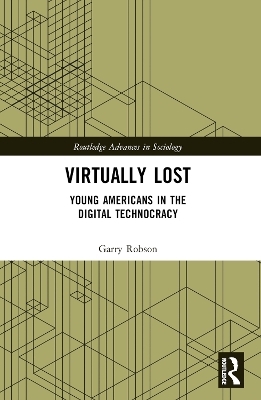
Virtually Lost
Routledge (Verlag)
978-1-032-48527-0 (ISBN)
This book examines the connections between the psycho-social difficulties and challenges faced by children and younger people in their online lives; the structure, character, and motivations of the corporate system ‘behind’ the screen; and the possibility that the digital technostructure may come to form the backbone of a new post-democratic system of technocratic governance.
Much of the originality of this book lies in its blending of subjects that are not often combined, thereby offering a fresh perspective: ‘generation studies’; the philosophy of technology; the history of the idea of technocracy; the technologically enhanced merger of corporate・governmental power in the U.S. system; the society-shaping goals and capabilities of the big tax-exempt American foundations over the last hundred years; the elite ‘superclass’ gaming of formally constituted transnational and global institutions; and the way the United Nations-centred SDG・ESG system is itself developing in the direction of a technocratic system of economic and population management.
The book will appeal to readers interested in relationships between our contemporary global power elite, the structures it has created and processes it has set in motion, and how these affect young people whose development is already being over-determined by the activities of the big Silicon Valley entities and their associates.
Garry Robson is Professor of Sociology at the Jagiellonian University’s Institute for American Studies in Krakow, Poland. He has taught at universities in the UK and Poland since 1995 and written widely on a variety of subjects including class, masculinity, and community in the context of sport cultures in No One Likes Us, We Don’t Care: The Myth and Reality of Millwall Fandom (2003); class, gentrification, and the social structure of London, in London Calling: The Middle Classes and the Remaking of Inner London (2003); intercultural experience and social media use among sojourning international students in Digital Diversities: Social Media and Intercultural Experience (2014, with Malgorzata Zachara); and numerous articles and book chapters on race and football; social class, accents, and dialects in Britain; the British New Labour government and therapy culture; Poland in the European Union; and, latterly, the philosophy of technology, surveillance capitalism, and technocracy.
Introduction
1. Big Nihilism: How the Silicon Valley Culture Hurts Young People
2. The Road to Technocracy: From Sir Francis Bacon to the World Economic Forum
3. Shaping Twentieth-Century America: Elite-Military Social Engineering
4. Sustainable Development as Technocracy: Population Control and the Corporate Capture of the Environmental Movement
5. Human-Machine Systems and their Discontents
6. The Classroom Laboratory #1: The Self-Esteem Movement, the Therapeutic Ethos and Utopian Education Reform.
7. The Classroom Laboratory #2: The Child-Machine Interface, Social Emotional Learning, and the Data-Mined Pupil as ‘Standing Reserve’.
8. Conclusion: Technocracy Unchained Vs. the Soul of the World
| Erscheinungsdatum | 16.05.2023 |
|---|---|
| Reihe/Serie | Routledge Advances in Sociology |
| Verlagsort | London |
| Sprache | englisch |
| Maße | 156 x 234 mm |
| Gewicht | 453 g |
| Themenwelt | Geisteswissenschaften ► Psychologie ► Allgemeine Psychologie |
| Geisteswissenschaften ► Psychologie ► Familien- / Systemische Therapie | |
| Geisteswissenschaften ► Psychologie ► Sozialpsychologie | |
| Mathematik / Informatik ► Informatik | |
| Medizin / Pharmazie ► Medizinische Fachgebiete ► Psychiatrie / Psychotherapie | |
| ISBN-10 | 1-032-48527-2 / 1032485272 |
| ISBN-13 | 978-1-032-48527-0 / 9781032485270 |
| Zustand | Neuware |
| Haben Sie eine Frage zum Produkt? |
aus dem Bereich


